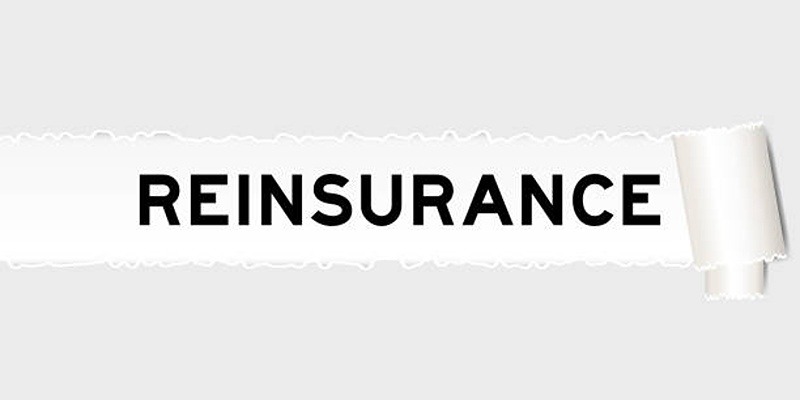Have you ever considered the repercussions of insufficient funds in your account? When your account balance falls short, Nonsufficient Funds (NSF) fees come into play. Let's delve into the fundamental aspects of NSF fees without getting entangled in complex financial language.
Understanding these fees is crucial for managing your finances effectively and avoiding unnecessary charges. So, join us as we simplify the concept of NSF fees, making it accessible for everyone, regardless of their familiarity with intricate financial terminology.
What Are Nonsufficient Funds or NSF?
Nonsufficient Funds (NSF) is a phrase commonly encountered while handling your bank account. In straightforward terms, it signifies that your account lacks the funds required to complete a transaction. In such instances, the bank imposes an NSF fee.
Consider it a subtle prompt to stay vigilant about your account balance, emphasizing the importance of managing your finances effectively. This fee is a nudge, reminding you to ensure ample funds are available to fulfill your financial transactions and avoid potential charges.
How Nonsufficient Funds Fees Work

Consider NSF fees as the watchful bouncer overseeing a financial nightclub, allowing only valid transactions to enter. When you purchase or write a check, your bank checks your account balance. An NSF fee is charged, typically from $25 to $35 if it's insufficient.
The Cumulative Impact of NSF Fees
It's crucial to grasp that NSF fees don't happen just once. With multiple transactions lacking adequate funds, an NSF fee accompanies each occurrence. These fees don't stand alone; they accumulate rapidly, turning a minor oversight into a valuable financial lesson.
Responsible Account Management
Taking charge of your account is the key to steering clear of these fees, ensuring your financial transactions proceed smoothly without unnecessary charges. Stay vigilant, maintain a well-funded account, and navigate your financial journey while sidestepping the pitfalls of NSF fees. Being proactive in managing your finances is your shield against unexpected fees, preserving your hard-earned money for what truly matters.
NSF Fees vs. Overdraft Fees
Navigating the nuances between NSF fees and overdraft fees is essential to clearly understand their distinct roles in the financial landscape. NSF fees and overdraft fees may be confused, but their differences hold significant importance. Overdraft fees occur when your spending surpasses your current balance, and the bank covers the transaction. Conversely, NSF fees are charged when the bank rejects a transaction because there isn't enough money in the account.
While both fees pose financial challenges, recognizing their subtleties is paramount in navigating the intricacies of banking. Overdraft fees may appear more lenient, permitting transactions with insufficient funds, but they introduce their considerations.
It's crucial to comprehend that overdraft fees essentially authorize spending beyond your account balance, with the bank bridging the deficit. On the other hand, NSF fees serve as a preventative measure, thwarting transactions when your account lacks sufficient funds.
Grasping these distinctions empowers you to make informed choices, avoid unnecessary fees, and ensure a smoother financial journey. Whether confronting overdrafts or NSF scenarios, awareness of these nuances significantly influences how you manage your finances. By delving into these differences, you learn to navigate the financial landscape wisely, making decisions that align with your financial well-being.
How to Avoid an NSF Fee
Nobody likes paying extra fees, especially when they sneak up unexpectedly. Here are some practical tips to avoid NSF fees:
Monitor Your Account
Regularly check your account balance to ensure you always have enough funds available for upcoming transactions. This proactive approach helps you maintain control over your finances and avoids encountering Nonsufficient Funds (NSF) fees due to insufficient funds in your account.
Set Up Alerts
Take advantage of the alert features offered by many banks. You can receive timely notifications whenever your account balance runs low by activating these alerts. This valuable tool acts as an early warning system, informing you about your financial status and preventing the surprise occurrence of NSF fees.
Link Accounts
Consider linking your savings account to your checking account, if possible. This strategic move allows for an automatic transfer of funds from your savings to cover any shortfall in your checking account. By establishing this connection, you create a financial safety net that minimizes the chances of facing NSF fees when your checking account lacks sufficient funds.
Opt-Out of Overdraft Protection
While some banks offer overdraft protection, it's essential to know that participation is optional. Opting out of this service means that transactions won't go through if there aren't enough funds in your account. By making a conscious decision to opt out, you take control of your financial choices and avoid potential overdraft fees associated with this protection feature.
Track Your Spending

Stay on top of your spending by closely monitoring your expenses to ensure they match up with your available money. Regularly checking your transactions helps you stay in control and allows you to spot and fix any discrepancies. This proactive approach significantly lowers the chances of facing insufficient funds (NSF) fees caused by unintentional overspending.
Create a Buffer
Build a financial safety net by ensuring a minimum balance in your checking account. This additional cushion is a protective buffer, offering extra security against NSF fees when unexpected expenses crop up. Having a comfortable minimum balance ensures that your financial foundation remains stable, preventing the unpleasant surprise of NSF fees in times of unforeseen financial needs.
Wrapping It Up!
In banking, grasping the ins and outs of insufficient funds (NSF) fees is akin to possessing a reliable map for steering through potential financial challenges. Armed with knowledge and taking proactive steps, you can sidestep these fees and ensure your earnings remain securely in your wallet. Remember to stay vigilant about your account balance when using your card to avoid encountering the unwelcome surprise of NSF fees. It's like having a financial compass to guide you on a smoother, fee-free financial journey.




